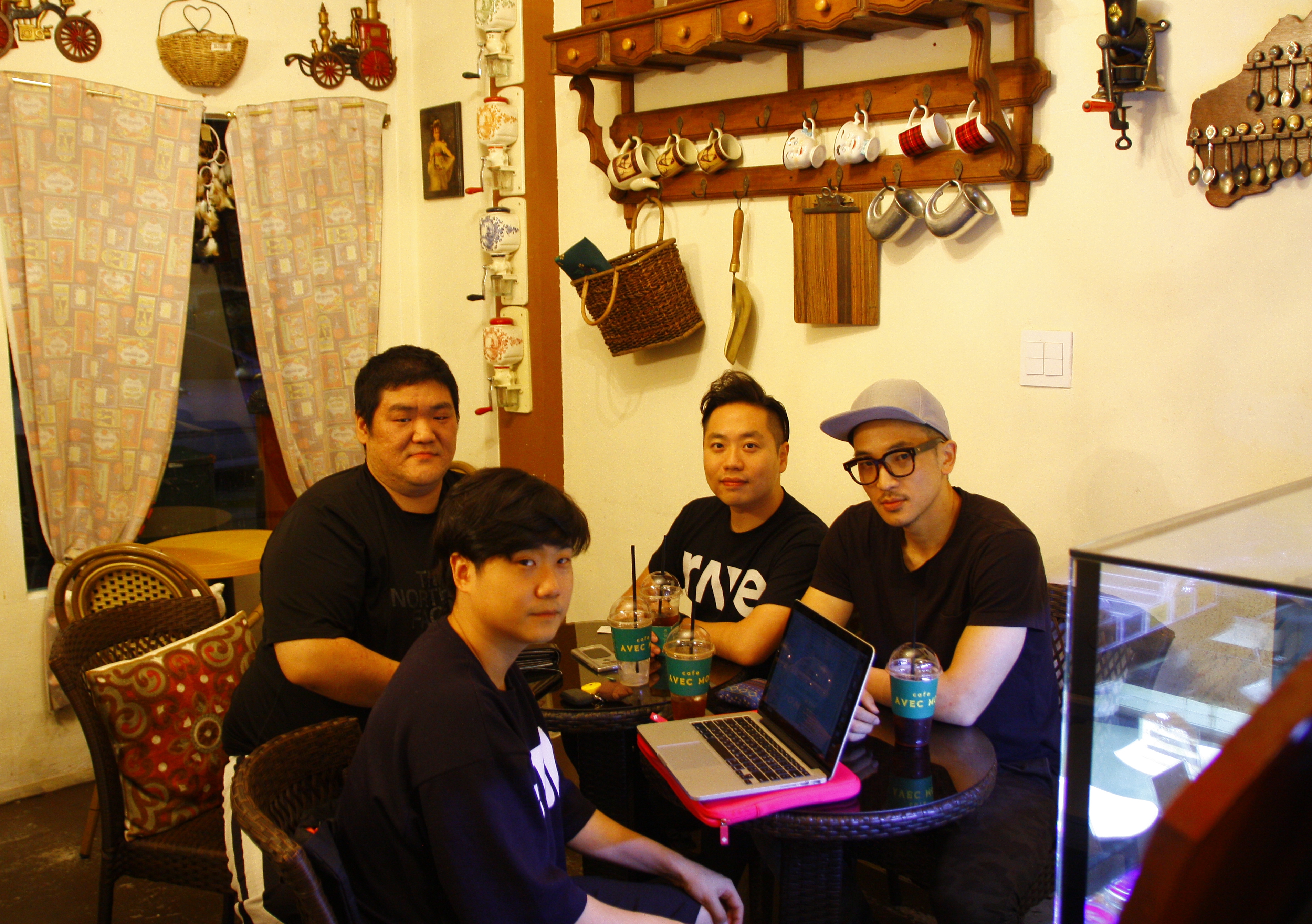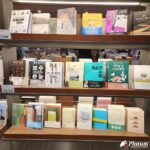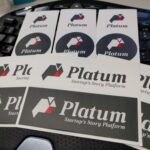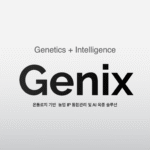 This story is not about the age of film cameras, it is about a mobile photo application called ‘Gudak(구닥)’ that was released in July this year. This analog application was ranked number one in the App Stores of nine different countries.
This story is not about the age of film cameras, it is about a mobile photo application called ‘Gudak(구닥)’ that was released in July this year. This analog application was ranked number one in the App Stores of nine different countries.
With this app, you need to take 24 photos and wait for three whole days to find out what photos you took. The viewfinder is very small and does not even have a preview function. You even have to pay USD 1.09 for this application.
‘Gudak’ was made by a temporary project team called ‘Screw Bar’, a team made up of four people with full time jobs. They meet once a month to share their ideas and work through online collaboration tools during the week.
We met with Kyung-Min Cho, the marketer at Screw Bar, who is already preparing for the second and third app that will become as successful as ‘Gudak’.
■ ‘Gudak’, the application that we made for fun after work
Platum: We heard the CEO of ‘Gudak’ is the CEO of an art school. Is that true?
Cho: Yes. He is the CEO of Apgujeong Artfeel Artschool, which is the biggest art school for students preparing to study abroad. Our CEO, Sang-Hoon Kang, graduated from Cooper Union in the U.S. and majored in fine arts. He teamed up with some of the students he taught and participated in competitions such as the ‘Red Dot Design Awards’. The Screw Bar team is also a project team. I was a student in that art school seven years ago and Kang taught me fine arts.
Platum: Do all the team members have full time jobs?
Cho: Yes. Currently, we have four members working remotely for this project and all of us have full time jobs. Our CEO and I work at the art school and our developer and distribution manager have other full time jobs. All of us are our CEO’s colleagues or students.
Platum: Was ‘Gudak’ Screw Bar’s first project?
Cho: No. Our first project was a cup holder. It was a cup holder that could be worn on the wrist like a bangle, but also could be used as a portable battery because it could be charged. Our CEO even visited Starbucks Headquarters in the states to propose the product, although it ended up getting rejected.
Platum: How did you end up making a mobile photo app that was completely different from the first project?
Cho: Our team members meet up at a café or at a restaurant once a week and, half of the time, we just talk about random stuff. We only talk very briefly about work-related stuff but so many random ideas come up. We suggest random ideas and see what the developer says. If he says we can’t make it, then that’s it. We decided to make ‘Gudak’ because the developer said it would take no server cost and it would be easy to make. At first, we thought, “Who would pay for this app?” We didn’t expect it to work out and just put it up as a paid-app.
Platum: What’s the traction like?
Cho: We officially launched the app on July 7 and it was ranked number one on the App Store in nine different countries–Hong Kong, Brunei, Taiwan, Thailand, Macao, Philippines, Malaysia, and Korea–by August 22. We had around 425,000 unique users by August 20.
■ 400K users that responded to “things to talk about” is the success factor
Platum: What do you think was the success factor for this app?
Cho: From a marketing point of view, I tried to put in things that people could ‘talk about’, in relation to our product. In fact, there are a lot of things that you can talk about when using the ‘Gudak’ app. The viewfinder is unbelievably small and it does not even have a preview function. You don’t know how the photo will be taken or how the photo will turn out. When you don’t have anything to talk about with your friends, you start by saying “Have you seen this app?” Honestly, I thought people would not like it because it does not make sense to some extent.
When we first launched this app, we went on some online forums and encountered very negative feedback — nearly 80% of the feedback was negative. However, thanks to that negative feedback, our app went viral. Later on, users who used our app introduced it to their family and friends so it became popular by word-of-mouth.
The concept that you can only take 24 shots at a time is very unique. These days, people take a lot of photos very easily and just forget about the ones that didn’t come out well. However, we think that the act of taking pictures is very important. We first started by trying to save the value of the process of finding and capturing the subject. We took our inspiration from the disposable film camera, and the name, ‘Gudak’, came from ‘Kodak’. It also suggests the word, ‘Gudakdari’, which means ‘old school’ in Korean.
The fact that you have to wait three full days to check what photos you took is also fun. At the same time, it takes patience to wait. ‘Three days’ also conveys special meaning. Back in the days, it took three days to have your photos printed out from the photo studio. Also, apparently people start to forget things after three days, but when they’re reminded within that time, the memory is often saved as a long-term memory.
■ We can work 24 hours because we are not working in a company
Platum: Your team started out as a temporary team, but since it is going well, is Screw Bar becoming an official company now?
Cho: No. We don’t plan to get an office or have the team members work full time on this project. We can’t reveal the specific amount, but you can estimate our revenue by calculating the cost of the application and the number of downloads. It is true that we unexpectedly have a lot of money in our pocket but we still have too many things that we want to do. With the revenue generated through ‘Gudak’, we want to continue to make products that we couldn’t make due to financial issues. Since we are working with online collaboration tools, we don’t need an office space.
Platum: If you are working remotely, I guess it is important to have deadlines and other rules.
Cho: Our CEO is most concerned about putting stress on team members. We believe that it is important to be fun with long-term goals, so the CEO has never forced us to do anything. In fact, there was no ‘deadlines’ so far, but since ‘Gudak’ became successful, we have tried to keep to deadlines and stay on schedule. When I used to work for other companies, I hated working overtime, but I saw myself working for 24 hours with Screw Bar. Like this, we voluntarily work on the things that we are responsible for, even after other employees go home.
Platum: Do you have other plans this year?
Cho: Actually, we are already working on another project. We started developing ideas when Gudak was getting some traction. The field is not clearly defined yet but we might even design products in the BIT field.
Usually, people say our competitor is analogue film but we don’t think that way. We could maybe say that game companies are our competitors. It is our goal to make products that provide fun in everyday life with gamification features, whether it be IT or non-IT related. Please keep an eye on us.

![[BLT칼럼] 엔젤투자의 3가지 즐거움 1114b3aee2b12](https://platum.kr/wp-content/uploads/2025/11/1114b3aee2b12-150x150.png)




댓글 남기기